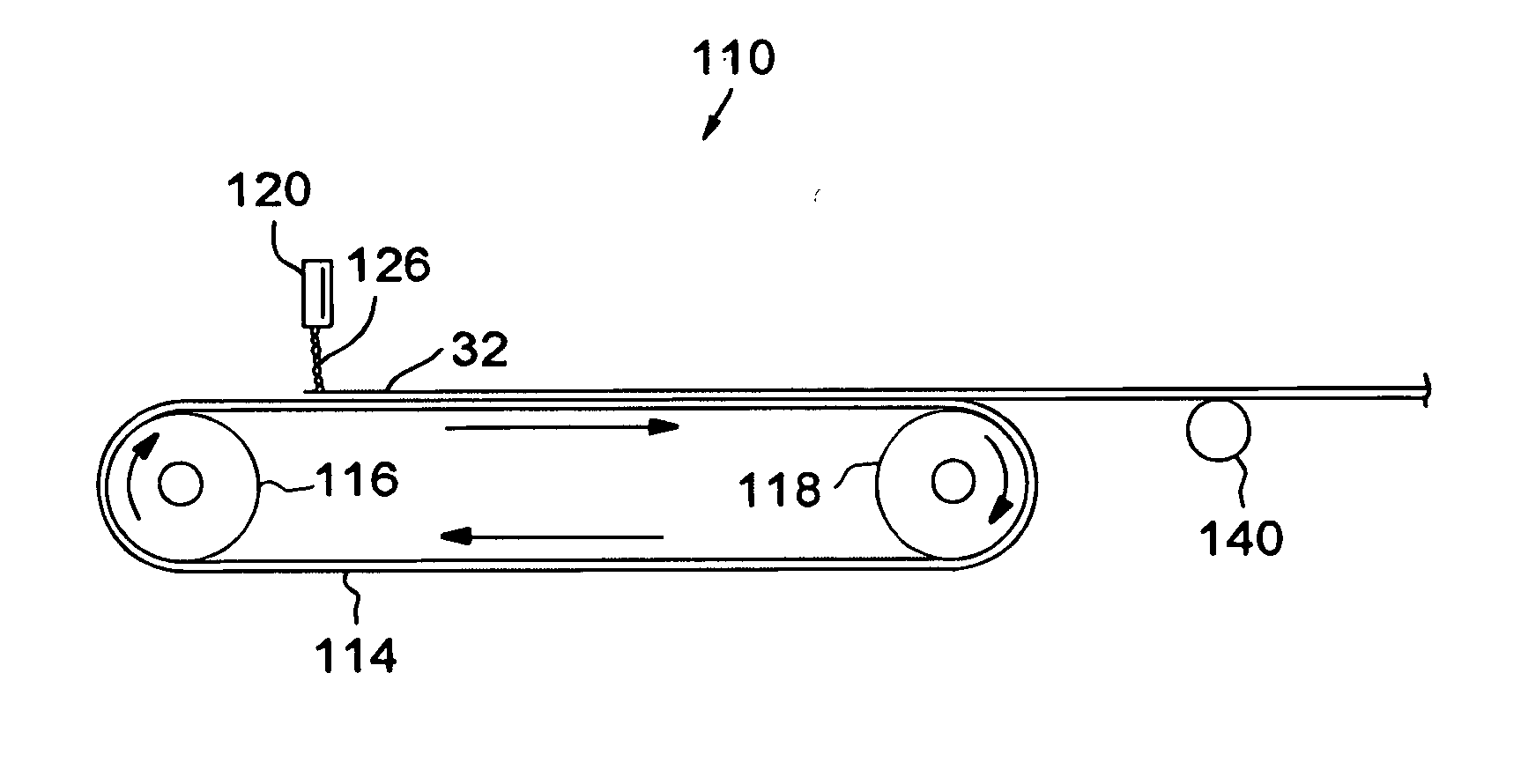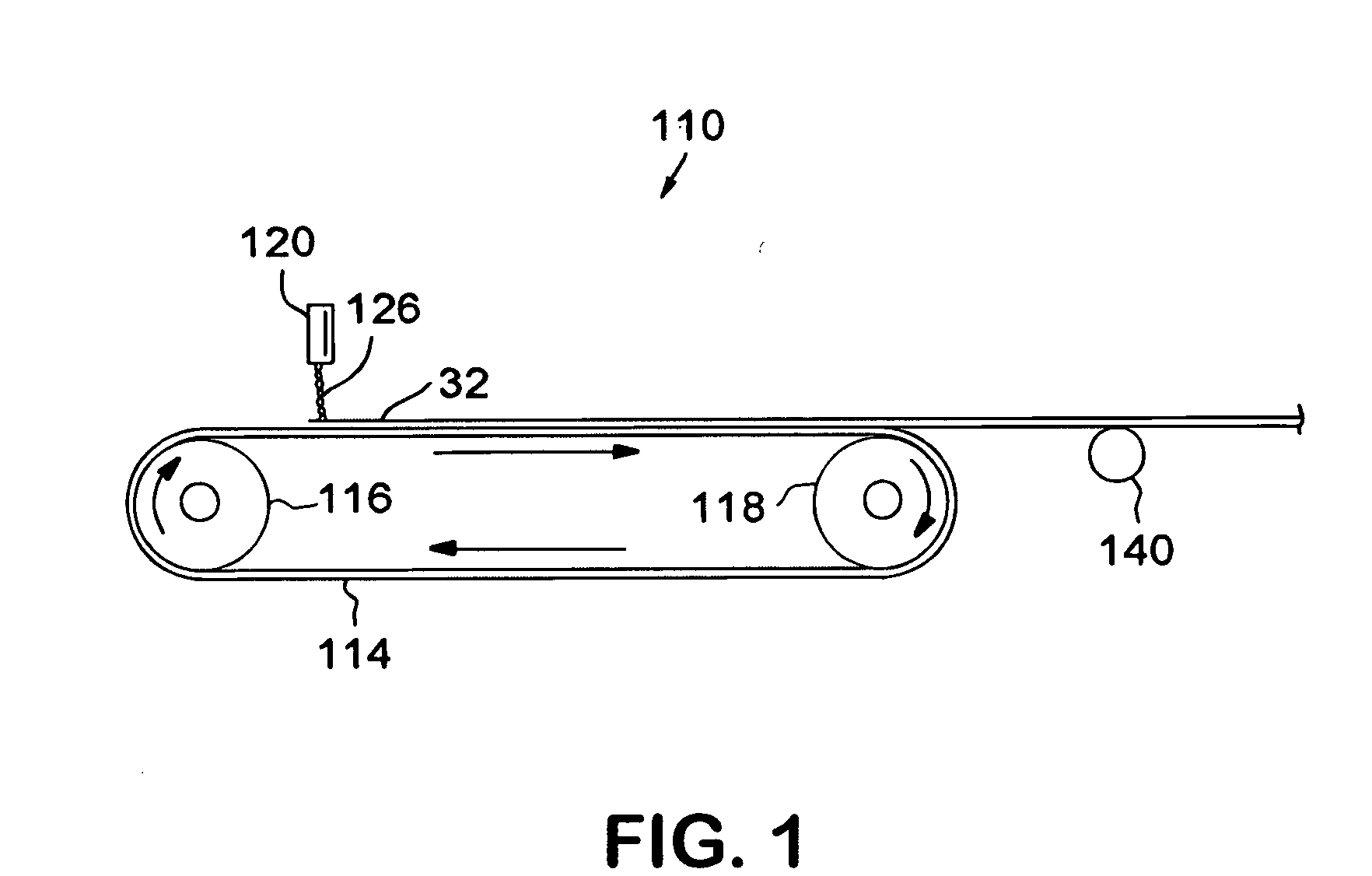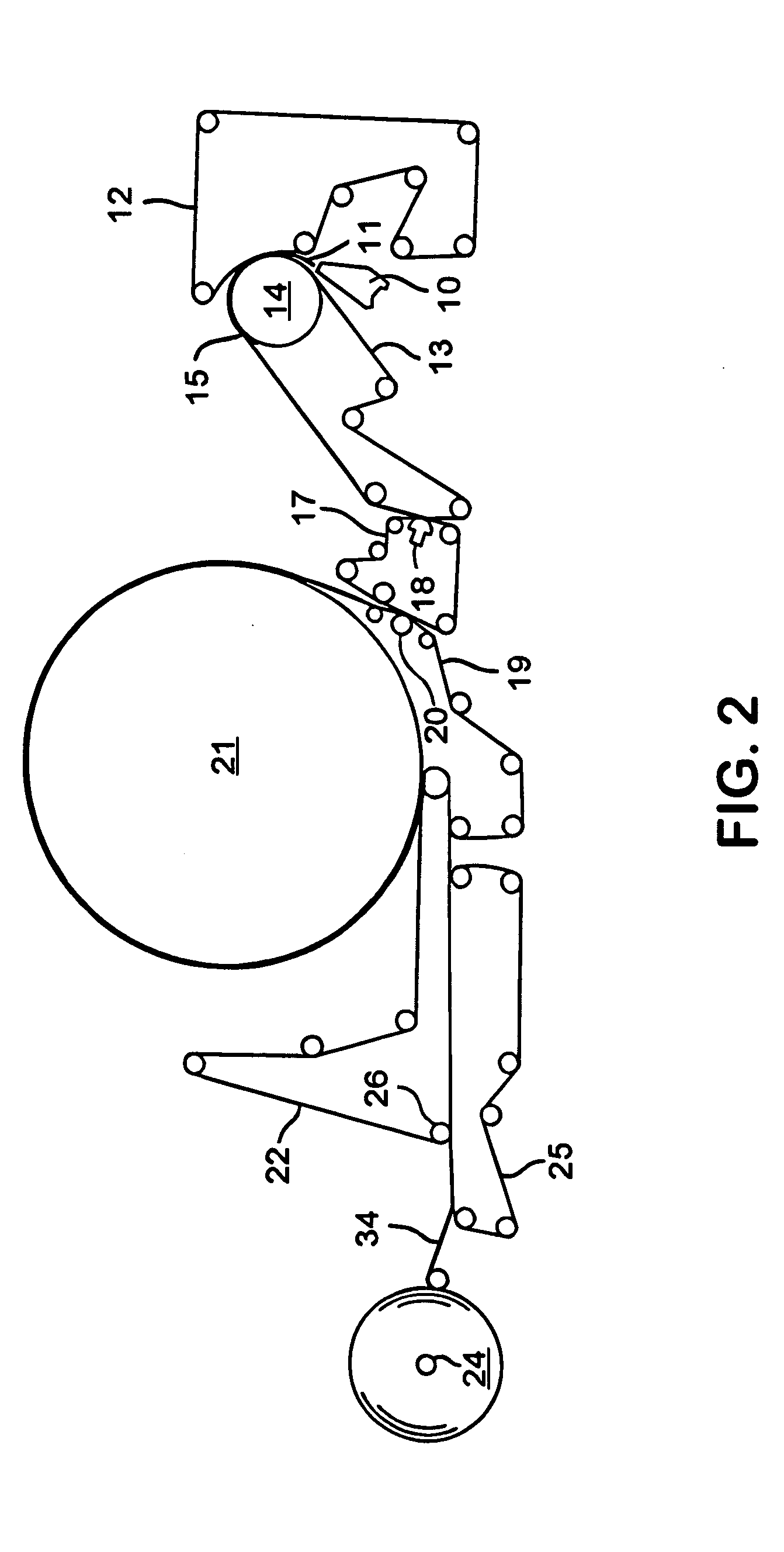Composite structures containing tissue webs and other nonwovens
a tissue web and composite structure technology, applied in carpet cleaners, weaving, cleaning machines, etc., can solve the problems of inconvenient use, high price of scrubbing pads, and inability to use disposable or single-use products, so as to resist the softening effect of water on the fiber, maintain the stiffness of the cell wall, and high levels of lignin
- Summary
- Abstract
- Description
- Claims
- Application Information
AI Technical Summary
Benefits of technology
Problems solved by technology
Method used
Image
Examples
example 1
Preparation of an Uncreped Through Dried Basesheet
[0205] To demonstrate an example of a textured, wet resilient absorbent web with improved dry feel, a suitable basesheet was prepared. The basesheet was produced on a continuous tissue-making machine adapted for uncreped through-air drying. The machine comprises a Fourdrinier forming section, a transfer section, a through-drying section, a subsequent transfer section and a reel. A dilute aqueous slurry at approximately 1% consistency was prepared from 100% bleached chemithermomechanical pulp (BCTMP), pulped for 45 minutes at about 4% consistency prior to dilution. The BCTMP is commercially available as Millar-Western 500 / 80 / 00 (Millar-Western, Meadow Lake, Saskatchewan, Canada). Kymene 557LX wet strength agent, manufactured by Hercules, Inc. (Wilmington, Del.) was added to the aqueous slurry at a dosage of about 16 kg of Kymene per ton of dry fiber, as was carboxymethylcellulose at a dose of 1.5 kg per ton of dry fiber. The slurry w...
example 2
A Laminate With a First Meltblown Polypropylene Web
[0207] High molecular weight isotactic polypropylene, Achieve 3915 manufactured by ExxonMobil Chemical Comp. (Houston, Tex.) was used in a pilot meltblown facility to make a polymer network by meltblown fiberization. The molecular weight range of the polymer is about 130,000 to 140,000. According to the manufacturer, the melt flow rate of the polymer according to ASTM D1238 is 70 g / 10 min, which is believed to be below the range of melt flow rates for polymers typically used in a meltblown operation; the polymer is normally used for a spunbond operation or other applications other than meltblowing. (For example, a typical meltblown polymer such as polypropylene PP3546G of ExxonMobil Chemical Corp. has a melt flow rate of 1200 g / 10 min, measured according to ASTM D1238, and polypropylene PP3746G of the same manufacturer has a melt flow rate of 1500 g / 10 min.) The high viscosity material was found to be surprisingly useful for produc...
example 3
A Second Meltblown Polypropylene Web
[0228] Bassell PF015 polypropylene manufactured by Bassell North America (Wilmington, Del.) having a nominal processing temperature of about 221° C. was used to produce a second meltblown polypropylene web to be used in making laminates with tissue. A pilot facility distinct from that of Example 2 was used. The meltblown web was produced through a meltblown tip (30 holes per inch, hole diameter 0.0145 inches) producing 4 pounds per inch of machine width per hour (4 PIH). Coarseness in the fiber was achieved by progressively lowering processing temperatures and primary air pressure while targeting basis weights varying between about 50 gsm and 100 gsm. For 50 gsm meltblown, the line speed was 78 feet per minute, and for 100 gsm meltblown, the line speed was 39 feet per minute. Initial processing temperatures of about 500° F. (260° C.) were lowered to between about 392° F. (200° C.) to about 410° F. (210° C.), with the die tip at 410° F. (210° C.)....
PUM
| Property | Measurement | Unit |
|---|---|---|
| Length | aaaaa | aaaaa |
| Length | aaaaa | aaaaa |
| Fraction | aaaaa | aaaaa |
Abstract
Description
Claims
Application Information
 Login to View More
Login to View More - R&D
- Intellectual Property
- Life Sciences
- Materials
- Tech Scout
- Unparalleled Data Quality
- Higher Quality Content
- 60% Fewer Hallucinations
Browse by: Latest US Patents, China's latest patents, Technical Efficacy Thesaurus, Application Domain, Technology Topic, Popular Technical Reports.
© 2025 PatSnap. All rights reserved.Legal|Privacy policy|Modern Slavery Act Transparency Statement|Sitemap|About US| Contact US: help@patsnap.com



